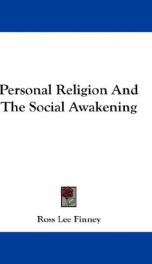the administration of village and consolidated schools

Purchase of this book includes free trial access to www.million-books.com where you can read more than a million books for free. This is an OCR edition with typos. Excerpt from book: some degree responsible for the enforcement of school law, but usually with seriously limited authority. In some states he examines and certificates teachers, and in most states conducts institutes. His educational leadership depends almost entirely upon the force of his own personality. The School District. The schools are still so largely subject to the control of local authorities that their quality depends mostly upon the intelligence and the progressive attitude of the local community and its school officers. Of recent years there has been a marked growth in the authority and influence of the principal, so that he exerts an ever increasing influence on the character of the school. The city government of incorporated villages seldom has anything to do with the schools. Instead they are under the control of school districts, which in most northern states are subdivisions of the township. The school district has an interesting history. In colonial times the unit of school administration in New England was the town (that is, the township); but as population grew, settlements multiplied until each township contained several nuclei of population, centering around the churches. Gradually this resulted in the subdivision of a township into districts, the districts usually being coextensive with the parishes. Little by little, through the lapse of two centuries, the control of the school was transferred from the township to these districts, until at last the districts became practically autonomous. The disadvantages of this arrangement, which will be discussed in the next chapter, were so great that a reaction set in about three quarters of a century ago, with the result that everywhere the districts are now supervised from above. In some states there has been a partial return to...
Info about the book
Author:
Series:
Unknown
ASIN:
B0012FJKLM
Rating:
4.5/5 (4)Your rating:
0/5
Languge:
English
Users who have this book
Users who want this book
What readers are saying
What do you think? Write your own comment on this book!
write a commentif you like the administration of village and consolidated schools try:
Do you want to exchange books? It’s EASY!
Get registered and find other users who want to give their favourite books to good hands!



